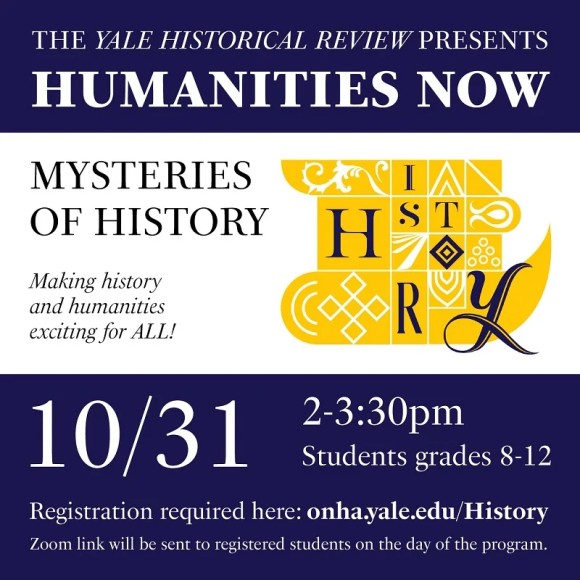The 1701 Project

In June 2020, members of the student-led Yale Historical Review (YHR) founded The 1701 Project, an initiative on racial injustice and social change. Although unrelated, we draw inspiration from Nikole Hannah-Jones and her colleagues’ examination of slavery’s legacies in The 1619 Project. The 1701 Project (a nod to the year of Yale’s founding) analyzes our university’s and our nation’s racist histories through an ongoing series of articles, interviews, and art. We have extended this conversation beyond New Haven, partnering with publications from other institutions across the country. This coalition, titled Of Many Strands (the name borrowed from the epilogue of Ralph Ellison’s The Invisible Man), will create a central online repository for our journals by the end of the fall. The 1701 Project and Of Many Strands seek to foster dialogue about our history in order to change our society today.
The 1701 Project provides a space for narratives traditionally excluded from the curriculum. We engage with American history in various ways to further this undertaking. For example, one essay dissects the dynamic between white spaces, such as Yale’s former Calhoun College, and counter-monumentality movements. We interview leading scholars, artists, and politicians such as Elizabeth Alexander, Kiley Reid, Donald Byrd, Justin Farmer, and Rosa DeLauro. These conversations with those outside of higher education seek to bridge divides between the academy and the general public. By moving almost all of our publications online, we at the YHR seek to engage more directly with an online readership drawing from various backgrounds, including local community members looking to make sense of Yale’s racist history as a pillar of the New Haven community.
In keeping with our efforts to engage with the New Haven community, we have created a mentorship program, titled Humanities Now, for students in grades 8-12. Starting in late October, YHR editors and a Yale professor will lead one Zoom session every month for students in the area. In our first meeting of Humanities Now, we will survey the history of voting in the US, conveying the power of being well-informed citizens.

In July, we expanded The 1701 Project by collaborating with undergraduate publications across the nation to create Of Many Strands. Over the past months, we have collected content to fill a new website that will house these works and as a collective, we hope that Of Many Strands will provide a platform for perspectives often excluded from the dominant narrative. Our peers from Rice have opened an article series on primary sources related to the trajectory of activism in Houston, eager to “contribute to this larger conversation about the history of racial justice in higher education.” Authors from Stanford and USC, respectively, will write on the stigmatization of Black women with eating disorders and the consequences of redlining during the pandemic. In addition, members from the USC journal of history—who have partnered with a local theatre company—stress that “we must honestly and directly address the history of racism in our institutions and communities” as we continue to promote diversity. Of Many Strands integrates local and national scopes and content in its efforts to amplify traditionally marginalized voices. As YHR editor Esther Reichek mentions, “we are optimistic about the joint power of so many journals to reshape institutional history and memory.”
The reading and writing of history can operate as a form of activism. Even humanities journals hold the potential to become agents for reform and public engagement. Though spread across the country, the publications that contribute to Of Many Strands share a single mission. Our colleagues at Northwestern captured that mission: “At this pivotal moment in American history, we find it imperative to amplify and support the voices of our peers who have been historically silenced.” The 1701 Project and Of Many Strands confront and connect our shameful past to the present. Only then can we start to create a better future.
Henry Jacob is the Editor in Chief of The Yale Historical Review. Henry is a senior majoring in History and pursuing a Certificate in Spanish. After graduating this coming May, Henry hopes to continue his research on Panama’s role as a cynosure of imperial designs and desires across centuries and empires.
Learn how to contribute to the Humanities for All blog here.